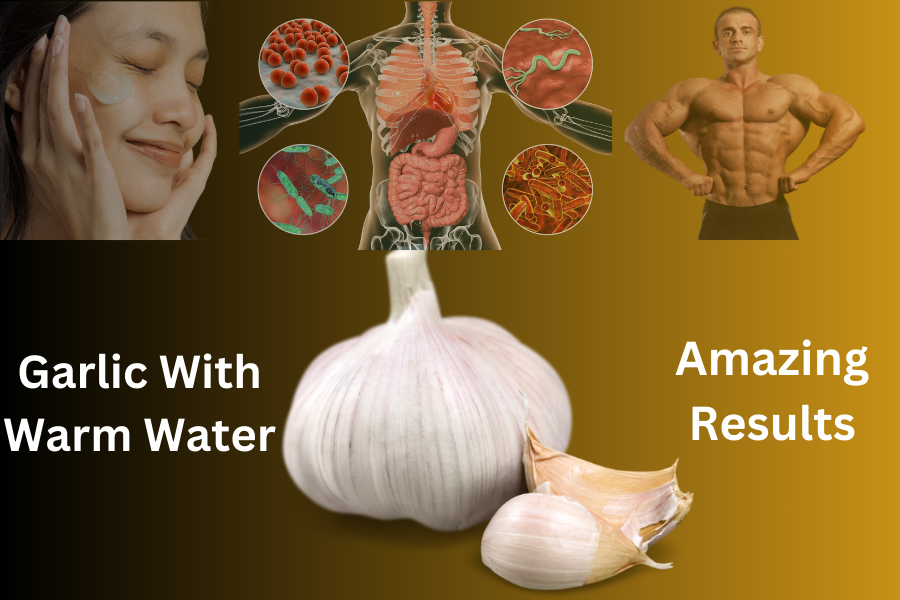Why Youngsters Are Having Heart Attacks in 2024: Unraveling the Mystery
Posted on : April 1, 2024 By Savan

We’ll delve into the causes, risk factors, preventive measures, and lifestyle changes to safeguard heart health. Let’s get started to unwrap why youngsters Are Having Heart Attacks!
Table of Contents
Why Youngsters Are Having Heart Attacks: Unraveling the Mystery
Introduction
Heart attacks, often associated with older adults, are increasingly affecting young people. While the image of a middle-aged man clutching his chest might come to mind, it’s essential to recognize that heart disease doesn’t discriminate by age. In recent years, there has been a concerning rise in heart attacks among young adults. Let’s explore the reasons behind this trend and discuss strategies to prevent these life-threatening events.

1. Risk Factors Due to Youngsters Are Having Heart Attacks
1.1 Diabetes
- Diabetes significantly elevates the risk of heart disease. People with diabetes are more likely to develop high blood pressure and high cholesterol, both of which contribute to heart attacks.
- The number of young people with diabetes is on the rise, emphasizing the need for early detection and management which is also a reason that youngsters Are Having Heart Attacks.
1.2 High Blood Pressure
- High blood pressure affects more young people than we might realize. The Centers for Disease Control and Prevention (CDC) reports that over 1 in 7 young individuals have elevated blood pressure.
- Obesity and sedentary lifestyles play a role in this surge. The 2017 AAP Guideline lowered the threshold for diagnosing high blood pressure, revealing its prevalence among young people. which is also a reason that youngsters Are Having Heart Attacks.
1.3 Overweight and Obesity
- A 2018 study found that higher body mass indexes (BMIs) correlate with worse cardiovascular health, even in young individuals.
- Obesity contributes to high blood pressure, left ventricular mass index (a predictor of sudden cardiac death), and overall heart damage. also a reason that youngsters Are Having Heart Attacks.
1.4 Smoking and Vaping
- Smoking and vaping remain significant risk factors for heart attacks. Nicotine harms blood vessels, accelerates atherosclerosis, and increases the likelihood of plaque rupture.
- Youngsters who smoke or vape should seek support to quit and protect their heart health. which is also a reason that youngsters Are Having Heart Attacks.
1.5 Substance Misuse
- Using drugs or drinking too much alcohol can be dangerous. These substances strain the heart, disrupt normal rhythms, and damage blood vessels.
- Early intervention and counselling are crucial for preventing heart attacks related to substance abuse.
1.6 Genetics
- Family history matters. If heart disease runs in your family, you’re at a higher risk.
- Genetic predisposition can’t be changed, but awareness allows for proactive measures. which is also a reason that youngsters Are Having Heart Attacks.
2. Prevention Strategies
2.1 Regular Wellness Checks
- Young adults should have regular wellness checks with a doctor. These visits help identify risk factors early and allow for timely interventions.
- Knowing your family’s heart health history is essential for understanding your individual risk.
2.2 Physical Activity
- Stay physically active! Engage in regular exercise, whether it’s brisk walks, jogging, swimming, or dancing.
- Physical activity strengthens the heart, improves circulation, and reduces stress. Today’s generation doesn’t consider this serious which is also a reason that youngsters Are Having Heart Attacks.
2.3 Heart-Healthy Habits
- Adopt heart-healthy habits, such as:
- Eating a balanced diet: Focus on fruits, vegetables, whole grains, lean proteins, and healthy fats.
- Avoiding tobacco: Say no to smoking and second-hand smoke.
- Managing stress: Practice relaxation techniques like meditation and yoga.
- Limiting alcohol: Moderation is key.
2.4 Recognizing Warning Signs
- Learn the warning signs of a heart attack:
- Chest pain or discomfort
- Shortness of breath
- Pain radiating to the arm, neck, jaw, or back
- Cold sweats, nausea, or lightheadedness
2.5 Emergency Action
- If you suspect a heart attack:
- Call emergency services immediately.
- Chew aspirin (if not allergic) to help prevent blood clotting.
- Stay calm and wait for medical assistance.
Conclusion
Heart attacks don’t discriminate based on age. Youngsters must prioritize heart health through lifestyle choices, regular check-ups, and awareness. By understanding risk factors and taking preventive measures, we can reduce the incidence of heart attacks among the youth. Let’s work together to keep our hearts strong and resilient! 💙🌟
Remember, prevention is the best medicine.
Heart-healthy diets?
Certainly! A heart-healthy diet plays a crucial role in preventing heart disease and maintaining overall cardiovascular health. Let’s explore some key principles and foods to include in your heart-healthy eating plan:
1. Heart-Healthy Diet Basics
1.1 Portion Control
- Control your portion size to avoid overeating. Be mindful of how much you consume, even when eating heart-healthy foods.
1.2 Focus on Nutrient-Rich Foods
- Prioritize nutrient-rich foods that promote heart health:
- Vegetables and Fruits: Vegetables and fruits are important because they have vitamins, minerals, and antioxidants.
- Whole Grains: Choose whole grains like brown rice, quinoa, and whole wheat bred.
- Lean Proteins: Choose lean meats, poultry, fish, and plant-based protein sources.
- Healthy Fats: Include sources like olive oil, avocados, and nuts.
1.3 Limit Unhealthy Choices
- Reduce or avoid:
- Processed and Red Meats: These are linked to heart disease.
- Added Sugars: Minimize sugary foods and beverages.
- Sodium (Salt): High sodium intake can raise blood pressure.
2. Specific Heart-Healthy Foods
2.1 Omega-3 Fatty Acids
- Add foods that have omega-3 fatty acids, like:
- Fatty Fish: Salmon, mackerel, sardines, and trout.
- Chia Seeds and Flaxseeds: Sprinkle them on salads or yogurt.
2.2 Fiber-Rich Foods
- Soluble fiber helps lower cholesterol levels. Include:
- Oats: Oatmeal or overnight oats.
- Legumes: Beans, lentils, and chickpeas.
- Fruits and Vegetables: Berries, apples, carrots, and broccoli.
2.3 Antioxidant-Rich Foods
- Antioxidants protect against oxidative stress:
- Berries: Blueberries, strawberries, and raspberries.
- Dark Chocolate: In moderation (choose high cocoa content).
- Green Tea: Rich in antioxidants.
2.4 Heart-Healthy Cooking Methods
- Opt for:
- Baking: Instead of frying.
- Grilling: Use lean meats and fish.
- Steaming: Retains nutrients.
3. Lifestyle Tips
3.1 Stay Active
- Regular physical activity supports heart health. Try to do at least 150 minutes of exercise that’s not too hard each week.
3.2 Manage Stress
- Chronic stress affects heart health. Practice relaxation techniques like meditation and deep breathing.
3.3 Avoid Smoking and Excessive Alcohol
- Smoking damages blood vessels, and excessive alcohol can harm the heart. Quit smoking and limit alcohol intake.
Remember, a heart-healthy diet isn’t about deprivation—it’s about making smart choices that nourish your heart and overall well-being. Consult with a healthcare professional or a registered dietitian to create a personalized plan tailored to your needs.
Stay heart-healthy! 💙🌱
What are some heart-healthy snack ideas?
Certainly! Maintaining heart health involves making mindful choices, even when it comes to snacking. Here are some heart-healthy snack ideas that are Tasty and Nutritionful:
- Matcha Tea:
- Matcha is a type of green tea rich in antioxidants like epigallocatechin gallate (EGCG). It helps prevent atherosclerosis and inflammation, reducing the risk of heart disease and stroke1.
- Sip on a cup of matcha tea for a soothing and heart-protective beverage.
- Sardines Packed in Olive Oil:
- Sardines are small, fatty fish loaded with omega-3 fats, which benefit heart health.
- The healthy fats in olive oil also contribute to improved cardiovascular well-being1.
- Enjoy sardines on whole-grain crackers or whole-wheat toast.
- Walnut and Tart Cherry Trail Mix:
- Walnuts enhance blood vessel function and reduce heart disease risk factors.
- Tart cherries provide polyphenol antioxidants that protect your heart1.
- Mix walnuts and tart cherries for a tasty and nutritious snack.
- Rainbow Chard Hummus Wraps:
- Swiss chard hummus wraps combine fiber, vitamins, and minerals.
- Use rainbow chard leaves as wraps, spread with hummus, and add veggies for a crunchy and heart-healthy snack.
- Vegetables and Dip:
- Slice up colorful veggies like carrots, bell peppers, and cucumber.
- Pair them with hummus, guacamole, or Greek yogurt dip for a satisfying snack.
- Chia Seed Pudding:
- Chia seeds are rich in omega-3s, fiber, and antioxidants.
- Mix chia seeds with almond milk, vanilla extract, and a touch of honey. Let it sit overnight for a delicious pudding.
- Crispy Chickpeas:
- Roast chickpeas with olive oil and your favorite spices (like paprika or cumin).
- They’re crunchy, protein-packed, and great for heart health.
Remember, small changes in your snacking habits can make a big difference for your heart. Choose nutrient-dense options and enjoy the benefits of a heart-healthy diet!
also read : Understanding Kidney Stones: Causes, Symptoms, Treatment, and Prevention in 10 Points
Share this articlePosted on : April 1, 2024 By Savan
Join Our Club

"Stay Informed, Stay Ahead – Join Our Club Today!"



















